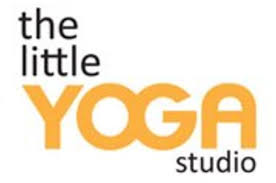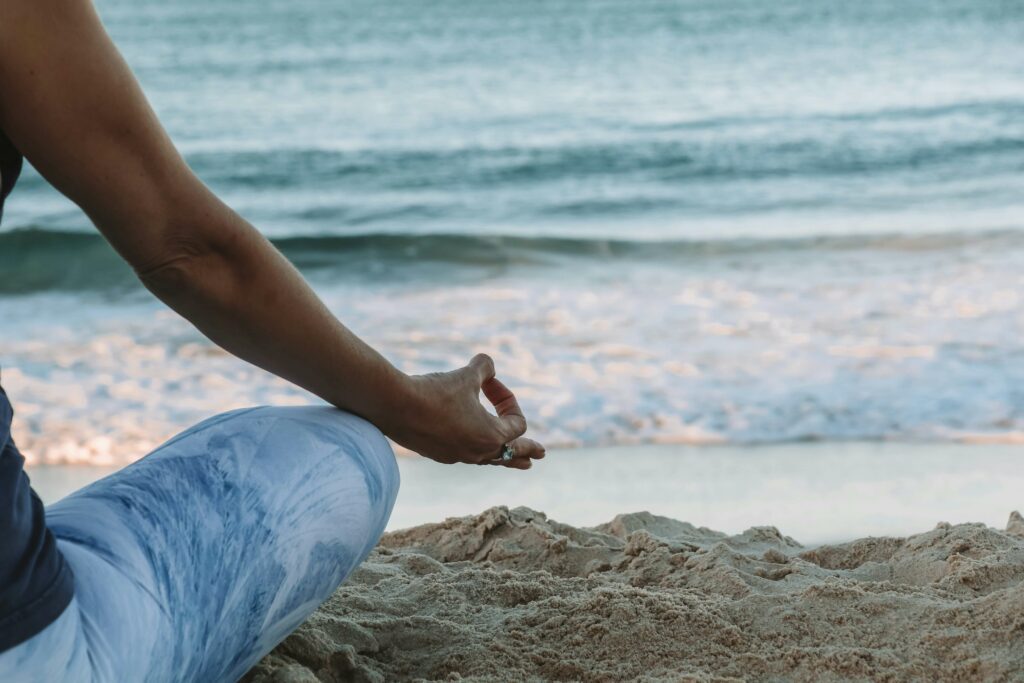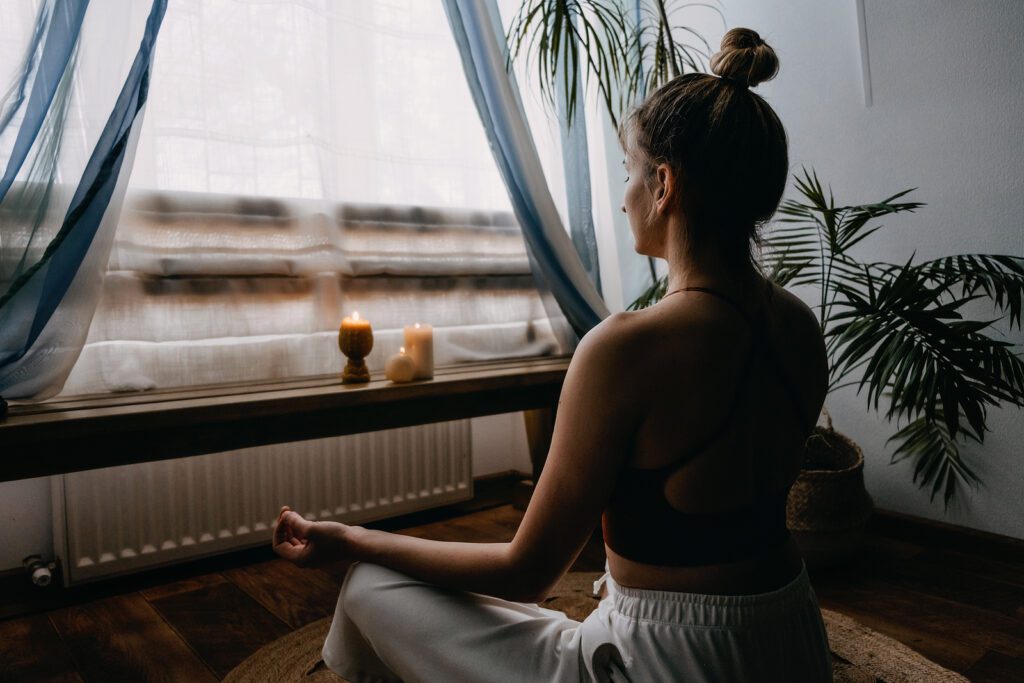A Research-Backed Perspective and A Local Boulder Yoga Studio
Gennifer Morley MA LPC
My Own Ah Ha in Yoga and the best Little Yoga Studio in Boulder
I have one especially poignant memory from a yoga practice many years ago that highlights one of the powers of yoga. I was in a class and the teacher instructed me to ‘deepen’ the yoga pose we were in more and I noticed that my next thought was: ‘I don’t like this teacher. They are probably … some ugly and demeaning criticisms’. When I noticed what I was thinking I realized that I was feeling threatened. Astonishingly, yoga was threatening me and my response was to attack, even if it was only in my mind. At that moment I don’t know that I got any more out of the yoga pose but I got a lot of noticing the entrenched pattern in my brain to attack when I felt threatened. That one moment freed me up to question any time I was criticizing others, whether it was while I was driving or in a relationship.

My experience is that the combination of being ‘stuck’ inside something both gentle and difficult at the same time creates a unique opportunity for us to experience our own minds.
I had already been doing yoga because it made me feel so good both in my body and also positive and focused in a pleasant and helpful way. I have been doing yoga at varying cadences for at least twenty years now. Living in Boulder there is a buffet of yoga studios to choose from so I am taking a moment to prop up one of my very favorite locally-owned Boulder yoga studios. The Little Yoga Studio. This studio has been around since 2011. They hire high-quality teachers and the owner, Kelly, is aligned with creating an inclusive and valuable yoga experience.
The Little Yoga Studio offers a good mix of gentle and rigorous asana practices as well as more contemplative practices. Kelly is thoughtful about the content of the practices as well as the culture of the community. It is sweet and peaceful with opportunities for folks who may want to push themselves physically and or spiritually. I highly recommend that you get yourself a yoga practice and at this studio, there is a sample of several types of yoga the owner and teachers are open to new people looking for more direction.
There is research to back up the yoga trend, here it is.
In recent years, the practice of yoga has gained widespread popularity, not only for its physical benefits but also for its profound impact on mental health. Across the globe, individuals from all walks of life are turning to yoga as a holistic approach to managing stress, anxiety, depression, and other mental health challenges. But what does the research say? This blog delves into the scientifically backed benefits of yoga for mental health, shedding light on why it is an increasingly recommended practice by mental health professionals.
Yoga and Stress Reduction
One of the most well-documented benefits of yoga is its ability to reduce stress. Stress is a significant factor that affects mental health, contributing to conditions like anxiety, depression, and even physical illnesses. Yoga, with its combination of physical postures (asanas), breath control (pranayama), and meditation, has been shown to reduce the body’s stress response.
Research conducted by the National Institutes of Health (NIH) found that regular yoga practice can lower cortisol levels, the body’s primary stress hormone. Lower cortisol levels translate to reduced feelings of stress and anxiety, promoting a calmer and more balanced mental state. The mind-body connection fostered through yoga helps individuals develop greater awareness of their thoughts and emotions, which can lead to better stress management.
Yoga as a Tool for Anxiety Relief
Anxiety disorders are among the most common mental health conditions worldwide. Yoga’s emphasis on mindful breathing and movement offers a natural and effective way to alleviate symptoms of anxiety. A study published in the Journal of Clinical Psychology found that participants who practiced yoga regularly experienced significant reductions in anxiety levels compared to those who did not.

The practice of pranayama, or breath control, plays a crucial role in this. By focusing on deep, rhythmic breathing, individuals can activate the parasympathetic nervous system, which helps the body return to a state of calm. This physiological response can counteract the fight-or-flight response that is often triggered in individuals with anxiety, leading to reduced feelings of panic and unease.
Yoga and Depression: A Natural Antidote
Depression is another mental health condition that can benefit from regular yoga practice. Several studies have shown that yoga can be as effective as some forms of psychotherapy and medication in reducing symptoms of depression. For instance, a study published in the American Journal of Psychiatry found that participants who engaged in yoga sessions twice a week reported significant improvements in their mood and overall mental health.
The physical activity involved in yoga stimulates the release of endorphins, often referred to as “feel-good” hormones. These hormones play a vital role in enhancing mood and creating a sense of well-being. Additionally, the meditative aspects of yoga encourage mindfulness, which can help individuals break free from the negative thought patterns often associated with depression.
Enhancing Emotional Regulation Through Yoga
Emotional regulation is crucial for maintaining mental health, and yoga has been shown to enhance this ability. Emotional regulation refers to the process by which individuals influence their emotions, how they experience them, and how they express them. Yoga’s emphasis on mindfulness, self-awareness, and breath control helps individuals become more attuned to their emotional states and develop healthier ways of responding to them.
A study published in the Frontiers in Psychology journal highlighted that yoga practitioners showed improved emotional regulation compared to non-practitioners. This improvement was attributed to the increased mindfulness and body awareness that yoga fosters. By regularly engaging in yoga, individuals can cultivate a greater sense of control over their emotions, reducing the likelihood of being overwhelmed by negative feelings.
Yoga for Improved Sleep Quality
Sleep plays a fundamental role in mental health, with poor sleep contributing to a range of mental health issues, including anxiety and depression. Yoga, particularly practices that emphasize relaxation and mindfulness, has been shown to improve sleep quality.
A study published in the Journal of Clinical Sleep Medicine found that individuals who practiced yoga regularly experienced better sleep quality and reported fewer sleep disturbances. The relaxation techniques and breathing exercises involved in yoga help calm the mind and prepare the body for rest, making it easier to fall asleep and stay asleep. Improved sleep, in turn, contributes to better overall mental health.
Social Connection and Community Building Through Yoga

Beyond the physical and mental benefits, yoga also fosters a sense of community and social connection, both of which are vital for mental well-being. Many people find a sense of belonging and support through group yoga classes, which can alleviate feelings of loneliness and isolation. Social connections are crucial for mental health, providing emotional support, reducing stress, and improving overall well-being.
In Summary, Go Try Yoga
The evidence is clear: yoga offers a wide range of benefits for mental health, from reducing stress and anxiety to improving sleep quality and enhancing emotional regulation. As research continues to uncover the myriad ways in which yoga positively impacts mental health, it is becoming increasingly clear why this ancient practice is being embraced by modern mental health professionals. Whether you’re struggling with a specific mental health condition or simply looking for a way to improve your overall well-being, incorporating yoga into your routine can be a powerful and transformative tool.
Cultivate Mindfulness With a Therapist in Boulder, CO
For those new to yoga, it’s important to start slowly and find a practice that feels comfortable and accessible. Many mental health practices now offer yoga sessions tailored to various needs, making it easier than ever to experience the benefits of this holistic approach to mental health. Our team of caring therapists would be happy to offer support as you experience the benefits of yoga. Start your therapy journey with North Boulder Counseling by following these simple steps:
- Contact us to request an appointment.
- Learn more about our therapists
- Start experiencing the physical and mental benefits of yoga!
Other Services Offered with North Boulder Counseling
Our team understands that you may experience multiple mental health concerns at one time. This is why we are happy to offer support for a variety of mental health issues with both in-person therapy and online therapy across the state. Our team is happy to offer depression treatment, anxiety treatment, play therapy, postpartum anxiety treatment, postpartum depression counseling, perinatal support, counseling for women, counseling for men, parenting coaching, grief counseling, trauma treatment and EMDR, depression treatment, teen therapy, and LGTBQ counseling. Please visit our blog or our about us page to learn more helpful information.




